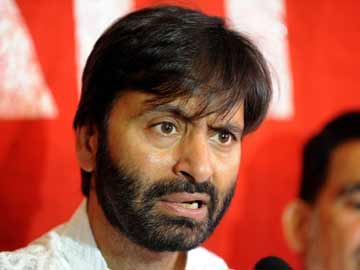
Ayodhya, Aug 5: Every street in Ayodhya was seen illuminated with earthen lamps ahead of the foundation stone laying ceremony of the Ram Temple on Wednesday.
People also lit diyas on the banks of Saryu river as part of the 'deepotsava' celebrations in the temple town which will see Prime Minister Narendra Modi and other dignitaries arrive today for the 'bhoomi pujan' ceremony of the Ram Temple.
The entire Ayodhya has been decked up and massive preparations have been made for this occasion with a festive air.
Earlier chief minister Yogi Adityanath had said that 11,000 diyas will be lit at Ram Ki Paidi on the banks of the Saryu river and that all houses and temples in Ayodhya will be celebrating with a 'deepotsava' (festival of lights) on the nights of August 4 and 5.
Adityanath burst firecrackers and lit earthen lamps at his official residence on in Lucknow as part of 'deepotsava'.
The construction work of Ram temple will begin after the foundation stone laying ceremony, in which dignitaries from various political and religious fields have been invited to participate.
Apart from Ayodhya other cities in like Kanpur were also illuminated to celebrate the grand event. Vishva Hindu Parishad (VHP) workers light earthen lamps in the city, as part of 'deepotsava'.
Chief Minister's residence in Uttarakhand will be decorated with 5100 diyas filled with Ghee on Wednesday evening to celebrate the occasion of the 'bhoomi pujan' of the Ram Temple in Ayodhya today by Prime Minister Narendra Modi.
Uttrakhand Chief Minister Trivendra Singh Rawat has said that Lord Ram Temple being built in Ayodhya is associated with "our belief". He also appealed to people in the state to light diyas at their homes on the occasion.
Earthen lamps were lit at Ujjain's Mahakaleshwar Temple in Madhya Pradesh and in Punjab too people lit lamps as part of 'deepotsava'.
Prime Minister Narendra Modi will perform 'pooja' at Hanumangarhi and Shree Ramlala Virajman before performing 'bhoomi pujan' of the Ram Temple in Ayodhya on Wednesday, informed Prime Minister's Office (PMO) on Tuesday.
He will unveil a plaque to mark the laying of the foundation stone and also release Commemorative Postage Stamp on 'Shree Ram Janmabhoomi Mandir'.
 Srinagar, Dec 3: Separatist group Jammu and Kashmir Liberation Front or JKLF on Monday alleged its chairman Mohammad Yasin Malik and his family had to spend several hours on road in Delhi after they were forced to leave the hotel booked by them.
Srinagar, Dec 3: Separatist group Jammu and Kashmir Liberation Front or JKLF on Monday alleged its chairman Mohammad Yasin Malik and his family had to spend several hours on road in Delhi after they were forced to leave the hotel booked by them.





Comments
Add new comment